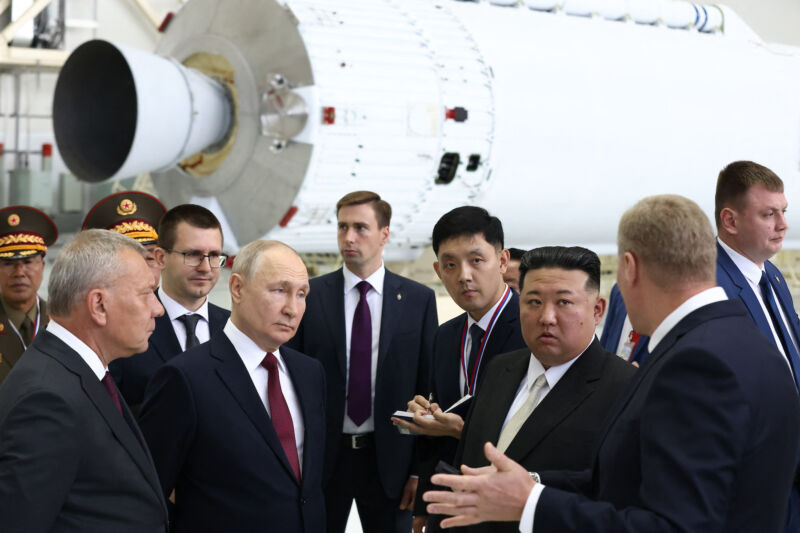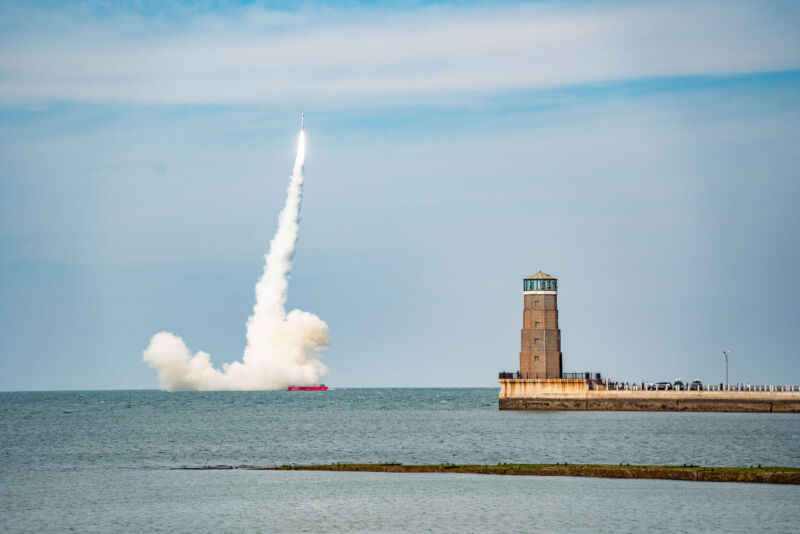Korea Box Office: ‘Harbin’ Continues Domination, ‘Sonic the Hedgehog 3’ Stays in Top Five


Earlier this week, North Korea apparently completed a successful test of its most powerful intercontinental ballistic missile, lofting it nearly 4,800 miles into space before the projectile fell back to Earth.
This solid-fueled, multi-stage missile, named the Hwasong-19, is a new tool in North Korea's increasingly sophisticated arsenal of weapons. It has enough range—perhaps as much as 9,320 miles (15,000 kilometers), according to Japan's government—to strike targets anywhere in the United States.
The test flight of the Hwasong-19 on Thursday was North Korea's first test of a long-range missile in nearly a year, coming as North Korea deploys some 10,000 troops inside Russia just days before the US presidential election. US officials condemned the missile launch as a "provocative and destabilizing" action in violation of UN Security Council resolutions.


© Contributor/Getty Images

Enlarge / In this pool photo distributed by Sputnik agency, Russia's President Vladimir Putin and North Korea's leader Kim Jong Un visit the Vostochny Cosmodrome in Amur region in 2023. An RD-191 engine is visible in the background. (credit: Vladimir Smirnov/Pool/AFP/Getty Images)
Russian President Vladimir Putin will reportedly visit North Korea later this month, and you can bet collaboration on missiles and space programs will be on the agenda.
The bilateral summit in Pyongyang will follow a mysterious North Korean rocket launch on May 27, which ended in a fireball over the Yellow Sea. The fact that this launch fell short of orbit is not unusual—two of the country's three previous satellite launch attempts failed. But North Korea's official state news agency dropped some big news in the last paragraph of its report on the May 27 launch.
The Korean Central News Agency called the launch vehicle a "new-type satellite carrier rocket" and attributed the likely cause of the failure to "the reliability of operation of the newly developed liquid oxygen + petroleum engine" on the first stage booster. A small North Korean military spy satellite was destroyed. The fiery demise of the North Korean rocket was captured in a video recorded by the Japanese news broadcaster NHK.

Enlarge / A sea-borne variant of the commercial Ceres 1 rocket lifts off near the coast of Rizhao, a city of 3 million in China's Shandong province. (credit: VCG via Getty Images)
Welcome to Edition 6.46 of the Rocket Report! It looks like we will be covering the crew test flight of Boeing's Starliner spacecraft and the fourth test flight of SpaceX's giant Starship rocket over the next week. All of this is happening as SpaceX keeps up its cadence of flying multiple Starlink missions per week. The real stars are the Ars copy editors helping make sure our stories don't use the wrong names.
As always, we welcome reader submissions, and if you don't want to miss an issue, please subscribe using the box below (the form will not appear on AMP-enabled versions of the site). Each report will include information on small-, medium-, and heavy-lift rockets as well as a quick look ahead at the next three launches on the calendar.

Another North Korean launch failure. North Korea's latest attempt to launch a rocket with a military reconnaissance satellite ended in failure due to the midair explosion of the rocket during the first-stage flight this week, South Korea's Yonhap News Agency reports. Video captured by the Japanese news organization NHK appears to show the North Korean rocket disappearing in a fireball shortly after liftoff Monday night from a launch pad on the country's northwest coast. North Korean officials acknowledged the launch failure and said the rocket was carrying a small reconnaissance satellite named Malligyong-1-1.